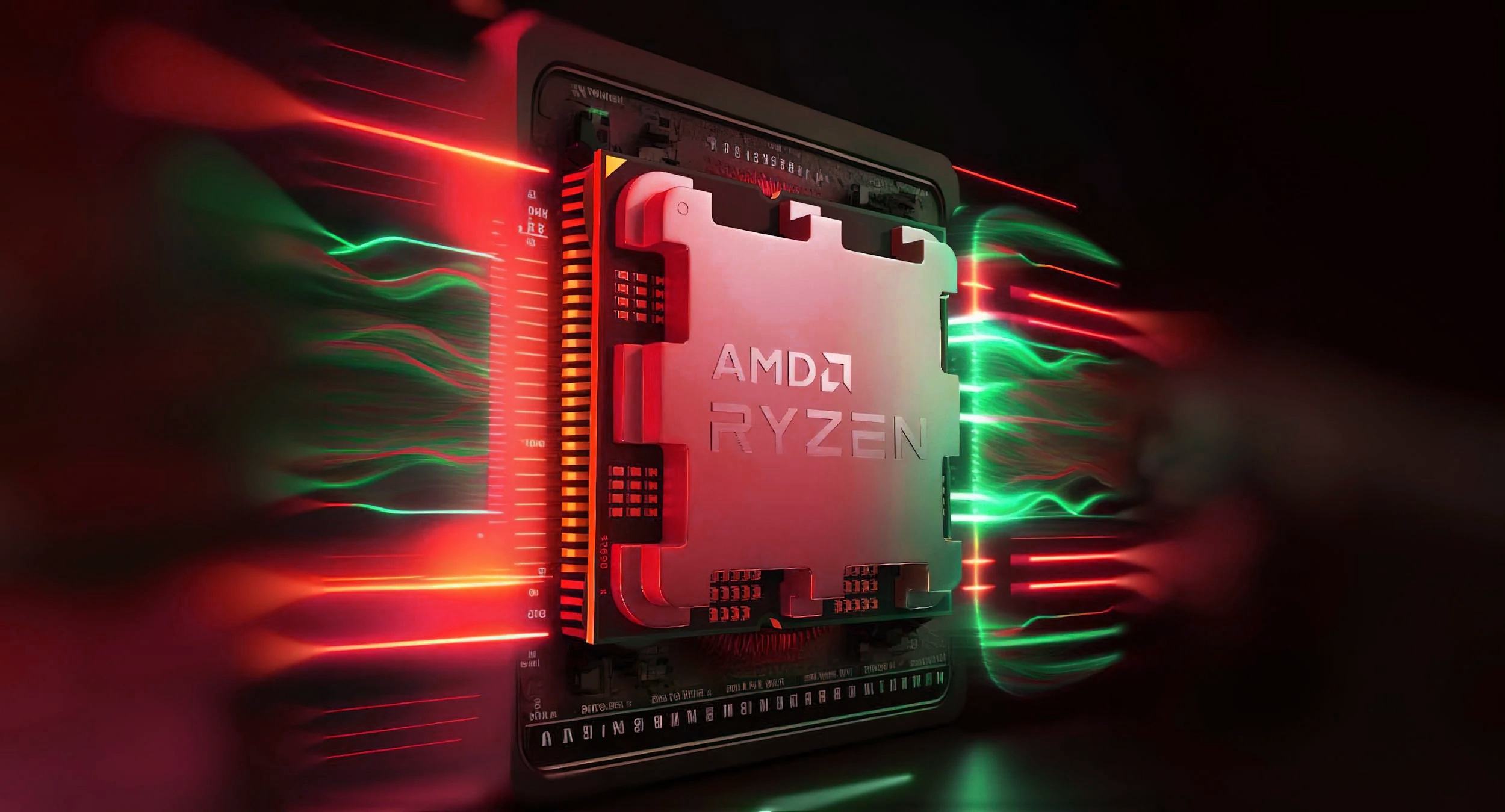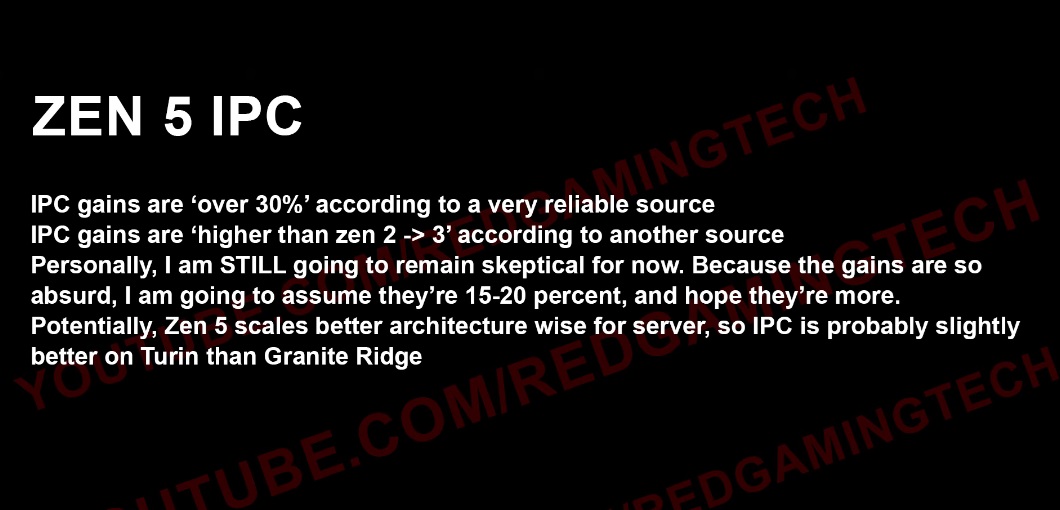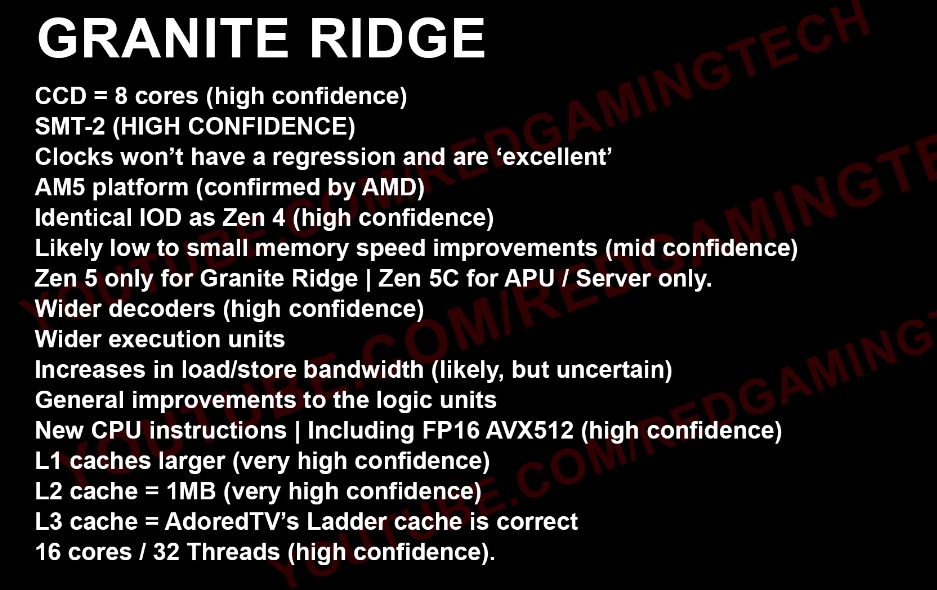Leaker reveals “ABSURD” IPC gains for AMD’s next-gen Zen 5 processors
YouTuber hints at “over 30%” IPC gains for AMD’s next-gen Zen 5 CPUs
AMD has confirmed that next-generation Zen 5 Ryzen CPUs will le launching in the second half of this year, and PC enthusiasts are excited to see how powerful these new CPUs will be. AMD has promised a “new grounds up microarchitecture”, and that has led many to expect high IPC gains from their Zen 5 processors.
Red Gaming Tech has reported that AMD’s Zen 5 architecture could feature IPC gains of “over 30%”. This claim reportedly come from a “very reliable source”. This would give AMD’s Zen 5 CPUs one of the strongest generational uplifts that the company has ever delivered. These gains are so large that the leaker has called them “absurd”, and these gains are true, Intel are in trouble.
IPC stands for “Instructions Per Clock”, and PC enthusiasts typically use the term to describe gen-on-gen performance gains for processors. Processors with a higher IPC can do more work than a CPU with lower IPC when running at the same clock frequencies. Using IPC, manufacturers like AMD can detail the performance increases offered by their new CPUs that do not rely on frequency uplifts.
Since PC workloads can vary significantly, manufacturers typically measure IPC gains using averaged performance gains across a range of workloads. Some workloads will benefit more from specific architectural changes than others, which means that application-specific IPC gains can vary wildly. This is why averaged IPC gains are often marketed.
What do these IPC gains mean for Zen 5?
AMD’s Zen 5 CPUs will reportedly run at similar clock frequencies to their Zen 4 counterparts. It has also been reported that AMD’s Zen 5 Ryzen “Granite Ridge” CPUs will also max out at 16 cores. This means that AMD will not be relying on clock speed or core count increases to boost Zen 5’s performance.
With no additional cores and no clock speed gains, Zen 5 was always going to be an IPC-focused processor. AMD needs large IPC gains to deliver the generational performance leap that buyers desire. While 30% IPC gains are huge, AMD has promised sweeping changes with their Zen 5 architecture. Large performance gains in some workloads should be expected. That said, an average of 30% gains across all workloads is indeed absurd.
If AMD can pull off these kinds of gains with Zen 5, their newest processors will sell like hotcakes. 30% IPC gains are huge gen-on-gen, but its worth remembering that most PC builders will be using older processors. With this in mind, many PC builders could achieve incredible performance uplifts if they upgrade to Zen 5.
Another detail that Red Gaming Tech has detailed is a confirmation of a prior Zen 5 leak. This leak is regarding AMD’s rumoured L3 “Ladder Cache”, which replaces the ring-bus style cache of older Zen CPUs. Simply put, this new design is intended to reduce core-to-core latencies within a single CCD and reduce L3 cache latencies. This allows CPU cores to grab data from L3 cache and other CPU cores faster. That means that Zen 5 CPUs could spend less time waiting and more time working; leading to performance benefits.
While I think this leaked IPC number is very optimistic, it is certainly the kind of upgrade that I would like to see from AMD. Like all PC enthusiasts I want to see hardware get faster and faster, but like all leaks or rumours, I’d take this information with a large helping of salt.
You can join the discussion on AMD’s rumoured Zen 5 IPC gains on the OC3D Forums.






